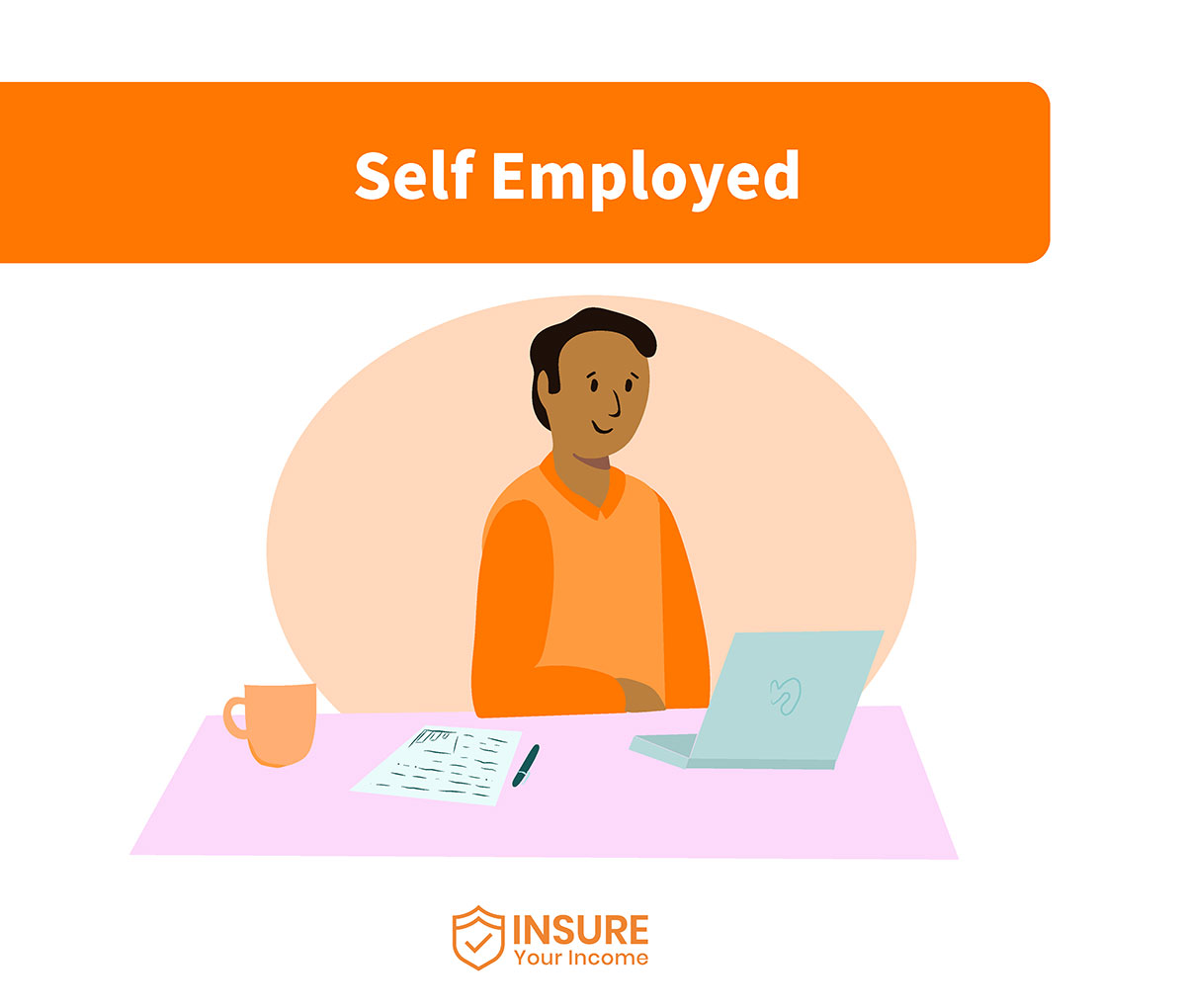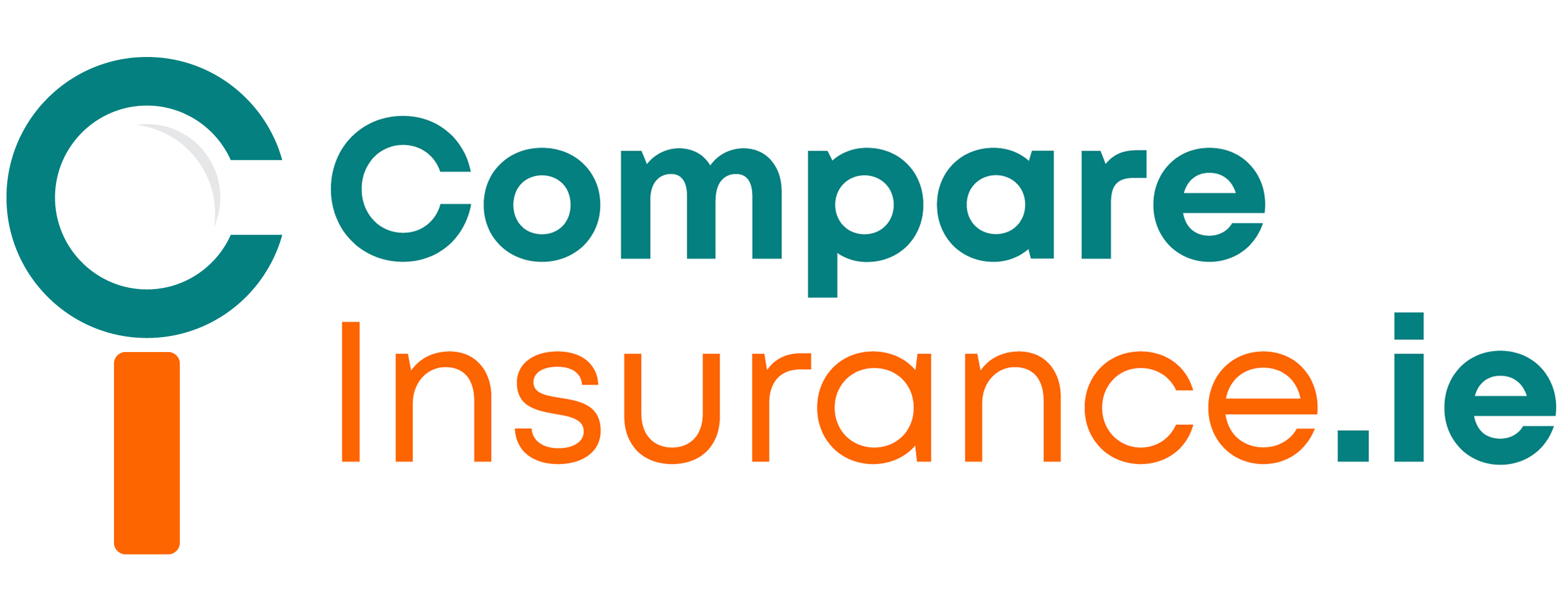Income insurance protects your income if you unexpectedly can’t work due to injury or illness.
It’s an easy way to help protect your financial future, and ensure your lifestyle and family are protected in any event.

Can a Blacksmith get income protection insurance?
Blacksmiths are a form of craftsmen who specialise in creating objects out of iron. Blacksmiths qualify for fourth-class income insurance as they face a high number of health and safety risks on the job. Blacksmiths work with heat and heavy-duty equipment on a daily basis and can suffer burns, eye injuries, and even broken bones.
Status: high risk- insurable
Can a Bricklayer get income protection insurance?
Bricklayers work in environments with a number of potential threats. Injuries are common within the profession. Eye injuries from flying brick fragments, malfunctioning equipment, and falling from a height (scaffolding) are just a few of the potential risks posed by bricklaying. Due to the relatively high-risk nature of bricklaying, bricklayers can qualify for class 4 income protection.
Status: high risk- insurable
Can a Builder get income protection insurance?
Builders are exposed to a number of high-risk situations on the job. For example, working with dangerous equipment, within unstable structures (old buildings), or becoming exposed to dangerous minerals like asbestos. Due to these risks, builders can qualify for fourth-class income protection, up until 65 years of age.
Status: high risk- insurable
Can a Camera Operator get income protection insurance?
Camera operators often work at a height or have to operate camera equipment which can expose operators to slip, trip, and fall accidents. Camera operators also work with a vast amount of electrical equipment which could lead to fire or injury. Accounting for these risks, camera operators qualify for second-class income insurance.
Status: mild risk- insurable
Can a Car mechanic get income protection insurance?
Car mechanics can qualify for fourth-class income insurance. Car mechanics encounter a number of hazards on the job including prolonged exposure to gasoline, solvents, solder, and diesel. Car mechanics are at risk of burns from battery acid, and car exhausts and can fall victim to electrical shocks or fires. Accounting for these risks, car mechanics qualify for fourth-class income insurance.
Status: high risk- insurable
Can a Concrete Erector get income protection insurance?
Concrete erectors do not qualify for income protection as they are prone to hazards on the job. Working with concrete for a prolonged amount of time means concrete erectors can suffer respiratory and skin problems. Concrete erectors also work with heavy machinery which can be dangerous if used incorrectly.
Status: declined- uninsurable
Can a Carpenter get income protection insurance?
Carpenters face a number of health and safety risks. Working with dangerous woodworking equipment like claw hammers and electric saws, carpenters are prone to injuries. Injuries can also be caused by overexertion, straining and slips, trips, and falls from scaffolding or on unsafe premises. Due to the health and safety risks of carpentry work, carpenters qualify for fourth-class income insurance.
Status: high risk- insurable
Can a Carpet Fitter get income protection insurance?
Carpet fitters generally work within private homes, where they are open to a number of potential hazards such as slips, trips, and fall hazards (wet floors, messy floors, unreliable flooring, etc). Fitters also work with a number of dangerous chemicals (present in wood glues and adhesive) which can be a threat to their health. Due to the health and safety risks of carpet fitting, carpet fitters qualify for third-class income insurance.
Status: moderate risk- insurable
Can a Carpet Layer get income protection insurance?
Carpet layers face a number of hazards at work; cuts (from a carpet knife), open wounds (from carpet burns), and inhaling dangerous chemicals in carpet adhesive, as well as dangerous particles from concrete. Due to these health and safety risks, carpet layers qualify for third-class income protection.
Status: moderate risk- insurable
Can a Ceiling Fixer get income protection insurance?
Ceiling fixers restore, repair, and assess ceilings. Ceiling fixers often work on heritage buildings and old ceilings. Ceiling fixers are prone to injury from ceilings caving in, falling concrete and planks, and falling from a height. The health and safety risks that come with being a ceiling fixer mean that those in the profession can qualify for class three income insurance.
Status: moderate risk- insurable
Can a Central Heating Engineer get income protection insurance?
Central heating engineers install, repair, and restore heating facilities. Their work is often dangerous and involves working with hot water boilers, radiators, and faulty piping. Central heating engineers can suffer injuries from burns, inhaling harmful gasses from gas leaks, and suffering trips and falls from leaking boilers or radiators. Central heating engineers can qualify for class four income protection because of these health and safety risks.
Status: high risk- insurable
Can a Clock Repairer get income protection insurance?
Clock repairers face a number of dangers on the job that could potentially threaten their income. Clock repairers working on tower clocks for example are at great risk of injury from a fall accident. Clock repairers working on smaller clocks can suffer from joint pain, such as rheumatoid arthritis. Clock repairers may also suffer burns, cuts from sharp tools, or inhale dangerous chemicals from glues or other materials. Considering the risks involved in clock repairing, clock repairers qualify for second-class income insurance.
Status: mild risk- insurable
Can a Clockmaker get income protection insurance?
Clockmakers can avail themselves of second-class income protection. Working with mainsprings in clocks can result in hand or eye injuries. Clockmakers also work with glues and paints that could be dangerous to inhale. Clockmakers often work with dangerous equipment such as soldering irons and chemicals.
Status: mild risk- insurable
Can Coach builder get income protection insurance?
Coach builders encounter a number of health and safety hazards manufacturing vehicle bodies. These hazards include working with dangerous power tools such as table saws (for creating wooden details) and drills. Coach builders often come in contact with dangerous chemicals, primarily in fuels and paint. Considering the risks involved in coach building, coach builders qualify for class four income insurance.
Status: declined- insurable
Can Cobblers get income protection insurance?
Cobblers use a number of dangerous tools and materials while mending footwear. Cobblers work with dangerous chemicals present in glue and adhesives which may be dangerous to their health. Cobblers also work with sharp tools on the job which can cause cuts and abrasions. Cobblers also face a number of ergonomic risks including stiffness, joint pain, and numbness. Accounting for these health risks, cobblers can be covered by third-class income protection.
Status: moderate risk: insurable
Can Domestic Electricians get income protection insurance?
Domestic electricians face a number of job hazards. Fatal shocks, electrical fires, and exposure to lead and dangerous chemicals are risks faced by all those working as domestic electricians. Accounting for the high level of risk involved, domestic electricians qualify for third-class income insurance.
Status: moderate risk: insurable
Can Domestic Gas Engineers get income protection insurance?
Domestic gas engineers ensure that domestic gas systems are properly installed. Working with gas, domestic gas engineers are at risk of inhaling poisonous gases such as carbon monoxide and hydrogen sulfide. Aside from gaseous risks, domestic gas engineers also face risks while installing and repairing boilers and gas fixtures. Domestic gas engineers engage in heavy lifting and oftentimes work with dangerous tools such as blowtorches and hacksaws. Domestic gas engineers qualify for third-class protection.
Status: moderate risk: insurable
Can Dry liners get income protection insurance?
Dry liners face a number of workplace hazards installing and repairing walls. Dry liners can inhale debris and dust from plaster causing respiratory problems. Dry liners work with plasterboard, a heavy material weighing between 25kg and 50kg. Manually handling plasterboard can lead to muscle strain and musculoskeletal problems. On top of these hazards, dry liners also often work at a height (on a ladder) and can suffer injury from potential falls. Considering these hazards, dry liners qualify for class four income protection.
Status: high risk: insurable
Can Electrical Engineers get income protection insurance?
Electrical engineers come in contact with a number of hazards on the job. Contact with live wires, causing shocks and burns, electrical fires and explosions, chemical burns, and injury from power tools are the main hazards electrical engineers are at risk of. Accounting for these hazards, electrical engineers qualify for class three income protection.
Status: moderate risk: insurable
Can Electronic Fitters get income protection insurance?
Installing and fitting electric appliances and wiring is a relatively risky occupation, with risks of livewires, fire, and explosions. Electronic fitters can suffer injuries in the form of burns, shocks, and in extreme cases electrocution (fatal). Considering the number of risks involved in the occupation, electronic fitters qualify for third-class income insurance.
Status: moderate risk: insurable
Can Fireplace Builders get income protection?
Fireplace builders come into contact with a number of hazards at work. These hazards include; working with dangerous tools, such as grinders and electric drills, inhaling dangerous particles from concrete, coming into contact with poisonous chemicals and metals, and falling from a height. Considering the level of risk involved fireplace builders qualify for class four income insurance.
Status: high risk: insurable
Can Gas Fitters get income protection insurance?
Gas fitters qualify for fourth-class income protection as the occupation is deemed high-risk. Fitting gas boilers and fixtures opens workers up to a number of hazards, including inhaling poisonous fumes, fires, explosions, and injuries from working with dangerous tools. Accounting for the high number of risks gas fitters can come into contact with, those in the occupation qualify for class four income protection.
Status: high risk: insurable
Can Glass Blowers get income protection insurance?
Glassblowers do not qualify for income protection. Glass blowers are prone to first-degree burns, respiratory problems from smoke inhalation, and retinal damage from exposure to flames. Considering these risks, glass blowers are denied income protection.
Status: declined- uninsurable
Can Glaziers get income protection insurance?
The work of a glazier can prove dangerous. Working with glass can lead to injuries including cuts and abrasions. Glaziers often work at a height (on ladders, scaffolding, etc) which can lead to injury from a fall. Glaziers are also exposed to solvents and potentially dangerous chemicals on the job. Considering the hazards involved in the work of a glazier, those in the occupation qualify for fourth-class protection.
Status: high risk- insurable
Can Goldsmiths get income protection insurance?
Goldsmiths encounter a number of physical hazards at work, such as burns from welding, and infrared and ultraviolet exposure. Goldsmiths qualify for third-class income protection to account for the risks involved in the occupation.
Status: moderate risk- insurable
Can a Heating Engineer get income protection insurance?
Installing and repairing heating systems (both residential and commercial) is a risky occupation with workplace injuries being common. Jobsite hazards include dangerous chemicals, gases and working environments such as working from a height or underground. A heating engineer may also be financially liable for damage caused to property or to members of the public. Considering the number of risks involved in the occupation, Heating Engineers qualify for fourth-class income insurance.
Status: high risk- insurable
Can HGV Mechanics get income protection insurance?
HGV mechanics are exposed to a number of hazards on the job that can impact their income. Hazards include injury from lifting heavy parts, inhaling poisonous gases and fuels, and working with dangerous tools. HGV mechanics can apply for fourth-class income protection, accounting for the risks involved in the job.
Status: high risk- insurable
Can Joiners get income protection insurance?
Joiners qualify for fourth-class income protection as joinery is a relatively high-risk profession. Joiners come into contact with a number of hazards on the job. These hazards include prolonged exposure to noise causing hearing damage, exposure to harmful substances like sawdust and asbestos, and working with powered tools causing cuts and abrasions.
Status: high risk- insurable
Can Kitchen Fitters get income protection insurance?
Kitchen fitters are exposed to a number of hazards on the job. These hazards can be electrical, causing fires or shocks. Kitchen fitters work with a number of dangerous tools, such as power saws which can lead to cuts and lacerations. Kitchen fitters also have an increased chance of suffering a slip, trip, and fall accidents. Considering the number of health and safety hazards involved in kitchen fitting, fitters qualify for class four protection.
Status: high risk- insurable
Can a Landscape Gardener get income protection insurance?
A landscape gardener is responsible for maintaining and constructing the grounds of private clients. Insurance is necessary to cover costs of personal injury, damage to property or injury to a client. Workplace accidents can be common, due to exposure to hazardous chemicals and long hours in harsh weather conditions. Gardening tools increase the risk of cuts to the user or other serious injuries. In addition, equipment and tools can be expensive to repair or replace if damaged or stolen. A landscape gardener qualifies for fourth-class income insurance.
Status: high risk- insurable
Can a Lift Engineer get income protection insurance?
Lift engineers are exposed to many risks while installing and repairing lifts. Workplace dangers span from a personal injury such as falling from a height, damage to private property while carrying out services, or accidental injury to the public such as trips over dropped tools. A lift engineer can be left financially liable to cover the costs of such unfortunate accidents. Therefore, a lift engineer will qualify for fourth-class income insurance.
Status: high risk- insurable
Can a Lift Repairer get income protection insurance?
Lift repairers are exposed to multiple risks while maintaining and repairing faulty or damaged elevators. Jobsite hazards include accidental damage to private property, and personal or public injury spanning from slips, trips and falls to electric shocks. Lift repairers can be left out of work due to injury or with expensive medical bills. In addition, they can be held financially responsible for any damage to property caused at a job site. Due to these hazards, lift repairers avail of fourth-class income insurance.
Status: high risk- insurable
Can a Line Worker get income protection insurance?
Line workers are exposed to enormous workplace hazards. While installing and repairing overhead transmission systems, a line worker is in serious danger of electrocution, falling from a height, being struck by a falling object, and long hours in adverse weather conditions. Accidents at work for a line worker can mean serious injury resulting in the inability to work or even death. Due to the gravity of these risks, line workers do not qualify for income insurance.
Status: declined- uninsurable
Can a Locksmith get income protection insurance?
A locksmith has the expertise to install, repair, maintain and replace all types of locks and or security systems. Like all trades, locksmiths are at risk of personal injury suffered at a job site so income insurance is important. Accidental injury to clients or the public such as slips trips or falls over dropped tools can be common, as well as damage to property while carrying out services. In addition, theft or damage of expense tools can rack up bills for a locksmith. Locksmiths quality for third-class income insurance.
Status: moderate risk- insurable
Can a Maintenance Technician get income protection insurance?
Maintenance technicians are responsible for surveying, maintaining, and repairing plumbing, mechanical and electrical systems. Working in a wide variety of circumstances with a wide variety of equipment poses a number of risks to maintenance technicians. These risks include electrical fires, burns, cuts from tools, chronic pain and slip, trip, and fall accidents. Considering these risks, maintenance technicians qualify for third-class income insurance.
Status: declined- uninsurable
Can a Mason Bricklayer get income protection insurance?
Mason bricklayers come in contact with a number of occupational hazards. They often work at a height, exposing them to the possibility of a fall (and injury). Mason bricklayers also work with a number of potentially dangerous tools in order to complete their work (brick saws, angle grinders), which put them at risk for injuries. Manual handling is also a leading form of injury for mason bricklayers. Whether lifting or laying bricks, engaging consistently in heavy lifting exposes mason bricklayers to back pain, strain, wrist and shoulder injuries. To account for the level of risk involved in mason bricklaying, those in the profession qualify for fourth-class protection.
Status: high risk- insurable
Can a Mechanical Engineer get income protection insurance?
Mechanical engineers often work with toxic substances, and dangerous machinery and tools. Their workplaces are susceptible to fires, explosions, and workplace accidents (from malfunctioning equipment). Considering the level of risk involved in mechanical engineering, those in the profession qualify for second-class income protection.
Status: mild risk- insurable
Can a Musical Instrument Maker get income protection insurance?
Musical instrument makers work with a number of potentially dangerous tools on a daily basis (chisels, scraper blades) which could result in injuries (cuts, lacerations). Musical instrument makers may suffer fearing damage from long-term exposure to loud noise and back strain or chronic pain from static postures and repetitive movements. Considering the level of risk involved in instrument making, those in the profession qualify for third-class income protection.
Status: moderate risk- insurable
Can a Musical Instrument Repairer get income protection insurance?
Musical instrument repairers come in contact with a number of occupational hazards. Often working with faulty or malfunctioning instruments, repairers face the risk of injury from these instruments. For example, a repairer could experience an electrical shock from a faulty electrical instrument or a cut or laceration from broken instrument strings. Repairers also work with a number of toxic chemicals (mainly in paint/glue) and tools (grinders, saw, chisel) which may lead to injury. Considering the moderate level of risk involved in musical instrument repair, those in the profession qualify for third-class income protection insurance.
Status: moderate risk- insurable
Can a Paint Sprayer get income protection insurance?
The main occupational hazard faced by paint sprayers is toxic inhalation. Breathing solvent paint fumes on a daily basis can lead to both short-term (headaches, dizziness) and long-term (lung irritation, respiratory disorders, sinusitis) adverse health effects. Paint sprayers may also encounter hazards when working at a height or on scaffolding, which opens up the potential of a fall. Considering the level of risk involved in paint spraying, paint sprayers qualify for fourth-class income protection insurance.
Status: high risk- insurable
Can a Painter and Decorator get income protection insurance?
A painter and decorator come in contact with a number of occupational hazards at work. These hazards include paint fume inhalation (leading to health problems), working at a height (which could lead to an injury from a fall, and often working with dangerous tools and chemicals (wallpaper scrapers, white spirits, etc). Considering the level of risk involved in painting and decorating, those in the trade qualify for fourth-class income protection insurance.
Status: high risk- insurable
Can a Panel Beater get income protection insurance?
Panel beaters face a number of health and safety hazards at work. Lead exposure is common working with old vehicles and metalwork which puts panel beaters at risk of lead poisoning. Panel beaters use a range of specialist tools, including panel beating hammers and panel rippers (which may cause injury). Panel beaters also work with a number of potentially dangerous substances such as polyurethane and panel filler (sealant). Considering these risks, panel beaters qualify for fourth-class income protection insurance.
Status: high risk- insurable
Can a Photocopier Engineer get income protection insurance?
Photocopier Engineers come across a number of electrical hazards at work, working with faulty equipment and sometimes live wires. Photocopier engineers are prone to electrical injuries such as shocks and burns from fires. Photocopier engineers are also prone to strains and chronic pain from repetitive movements and stiff postures. Considering the risks involved in the job, photocopier engineers qualify for third-class protection.
Status: moderate risk- insurable
Can a Plasterer get income protection insurance?
Plastering work often involves working at a height, opening up the plasterer to injuries from slip, trip, and fall accidents. Plasterers also face ergonomic risks from heavy lifting and manual work. Plasterers can also inhale plaster dust leading to breathing and lung problems. Considering these risks, plasterers qualify for fourth-class income protection.
Status: high risk- insurable
Can a Plumber get income protection insurance?
Plumbers encounter a number of health and safety hazards on the job that impacts the level of income insurance they qualify for. A plumber can be exposed to hazardous substances such as lead, silica, and asbestos working with piping. A plumber may also suffer burns from hot water or from electrical fires. Ergonomic factors can also impact a plumber’s health, as many plumbers experience back pain or arthritis from working in uncomfortable positions. Considering the level of risk involved in plumbing, plumbers qualify for fourth-class income protection.
Status: high risk- insurable
Can a Radio and Television Repairer get income protection insurance?
Radio and television repairers are exposed to a host of health and safety hazards working with electrical equipment (fires, electrical shocks). Radio and television repairers are open to injury from manual handling and pain and injury from repetitive movements. Considering these risks, radio and television repairers qualify for third-class income protection.
Status: moderate risk- insurable
Can a Roof Tiler get income protection insurance?
Roof tilers are exposed to a high level of risk, working at a height and oftentimes on slippery and unsound structures, massively increasing the chance of slip, trip, and fall accidents. Roof tilers can also come into contact with exposed power lines and dangerous tars and chemicals. Due to such a high level of risk, roof tilers do not qualify for income protection insurance.
Status: declined- uninsurable
Can a Roofer get income protection insurance?
Roofers are exposed to a number of health and safety hazards on the job. These hazards include the risk of a fall (which can be fatal), electrocutions, burns, and exposure to dangerous substances such as lead or asbestos. To account for the high level of risk involved in roofing, those in the profession cannot be protected by income insurance.
Status: declined- uninsurable
Can a Scaffolder get income protection insurance?
Scaffolders are open to injuries from slip, trip and fall accidents from a height. Scaffolders also face the risk of a scaffolding collapse, electrocution from exposure to live wires, and a collision with a fallen object. Considering the high level of risk involved in scaffolding, those in the career do not qualify for income protection.
Status: declined- uninsurable
Can a Sheet Metal Worker get income protection insurance?
Sheet metal work is generally very high-risk. Sheet metal workers are prone to cuts and lacerations from sheet metal, respiratory problems from breathing in sheet metal dust, and skin burns from hot metal. Accounting for this high level of risk, sheet metal workers cannot qualify for income protection insurance.
Status: declined- uninsurable
Can a Shoe Maker get income protection insurance?
Shoemakers encounter a number of health and safety hazards on the job. Shoemakers come into contact with a host of toxins and dangerous chemicals in glue and other solvents, such as benzene and toluene which can have adverse health effects if inhaled. Shoemakers are also open to injury from equipment such as sewing machines and hammers. People working in shoemaking can also suffer from back strain and chronic pain from static working positions and repetitive movements. Considering the level of risk involved in shoemaking, those in the profession qualify for third-class income protection insurance.
Status: moderate risk- insurable
Can a Slater get income protection insurance?
Working on roofs and at a height opens slaters up to the possibility of slip, trip, and fall accidents. Slaters are also at risk of breathing in toxins and dust from concrete slates which may prove damaging to their health. Considering the high level of risk involved in slating, those in the profession cannot receive income protection insurance.
Status: declined- uninsurable
Can a Steeplejack get income protection insurance?
Steeplejacks operate in high-risk situations, repairing and working on high structures. Steeplejacks are at great risk of falling and suffering an injury. Steeplejacks can also be exposed to electrical hazards such as live wires and chemical hazards such as lead. Considering this high level of risk, steeplejacks cannot avail of income protection insurance.
Status: declined- uninsurable
Can a Stevedore get income protection insurance?
Stevedores come into contact with a number of health and safety hazards when at work. Stevedores carry out a large amount of manual handling which opens them up to injury, and long-term pain. Stevedores also face the risk of being hit by falling objects within cargo vessels. Working with oftentimes large shipments means a falling object could be extremely dangerous and even fatal. Considering the level of risk in the job, stevedores do not qualify for income protection.
Status: declined- uninsurable
Can a Stone Carver get income protection insurance?
Stone carvers work with a number of dangerous tools when carrying out their work. Tools such as hammers and chisels can result in serious injury. Stone carvers are also at risk of inhaling dust particles leading to respiratory problems. Accounting for these risks, carvers qualify for fourth-class income protection insurance.
Status: high risk- insurable
Can a Stonemason get income protection insurance?
Stonemasons can suffer hearing damage from long exposure to noise, respiratory problems from inhaling stone dust, and strain from lifting and carrying stone slabs. Due to these health and safety risks, stonemasons can qualify for fourth-class income protection.
Status: high risk- insurable
Can a Tanner get income protection insurance?
Tanners are exposed to a number of health and safety risks, working with animal hides. Tanners can contract infections and diseases from animal skin. Tanners can also face injuries such as cuts and lacerations from sharp cutting tools. To account for these risks, tanners qualify for fourth-class income protection insurance.
Status: high risk- insurable
Can a Taxidermist get income protection insurance?
Taxidermists come into contact with a number of dangerous chemicals used for preservation (allum and borax) which can have adverse health effects on taxidermists. Taxidermists also work with sharp tools in their work which could lead to injuries from cuts. Working with animal bodies also presents the risk of contracting zoonotic diseases. Considering the level of risk involved in taxidermy, taxidermists qualify for second-class income protection insurance.
Status: mild risk- insurable
Can a Thatcher get income protection insurance?
Thatchers face a great risk working at a height on a daily basis. Thatchers are at risk pf slip, trip, and fall accidents, as well as collapsing through unsound roofing structures. Thatchers also work with a number of dangerous tools in their work such as shears and power drills which can lead to injury. Considering these risks, thatchers do not qualify for income protection insurance.
Status: declined- uninsurable
Can a Wall Tiler get income protection insurance?
Wall tilers come into contact with a number of health and safety hazards on the job. These hazards include exposure to dangerous chemicals in solvents, asbestos in floor tiles, unlevelled terrain leading to slip, trip, and fall accidents, working at a height, and injuries from power tools such as tile cutters. To account for these risks, tile cutters can qualify for third-class income protection insurance.
Status: moderate risk- insurable
Can a Welder get income protection insurance?
There are a wide range of health and safety risks associated with welding. These risks include eye damage from open flames, skin burns from flames or hot metal, electrical shocks, and inhalation of toxic fumes and gasses. Considering these risks, welders qualify for fourth-class income protection insurance.
Status: high risk- insurable
Can a Yacht builder get income protection insurance?
Yacht builders are exposed to a number of occupational hazards. Yacht builders work with a large number of chemicals to carry out their work, such as styrene, resins, solvents, and paints, all of which can lead to adverse health effects. Yacht builders are also prone to injury from electrical shocks and fires, and injury from manual handling. Considering this high level of risk, yacht builders do not qualify for income protection insurance.
Status: declined- uninsurable




